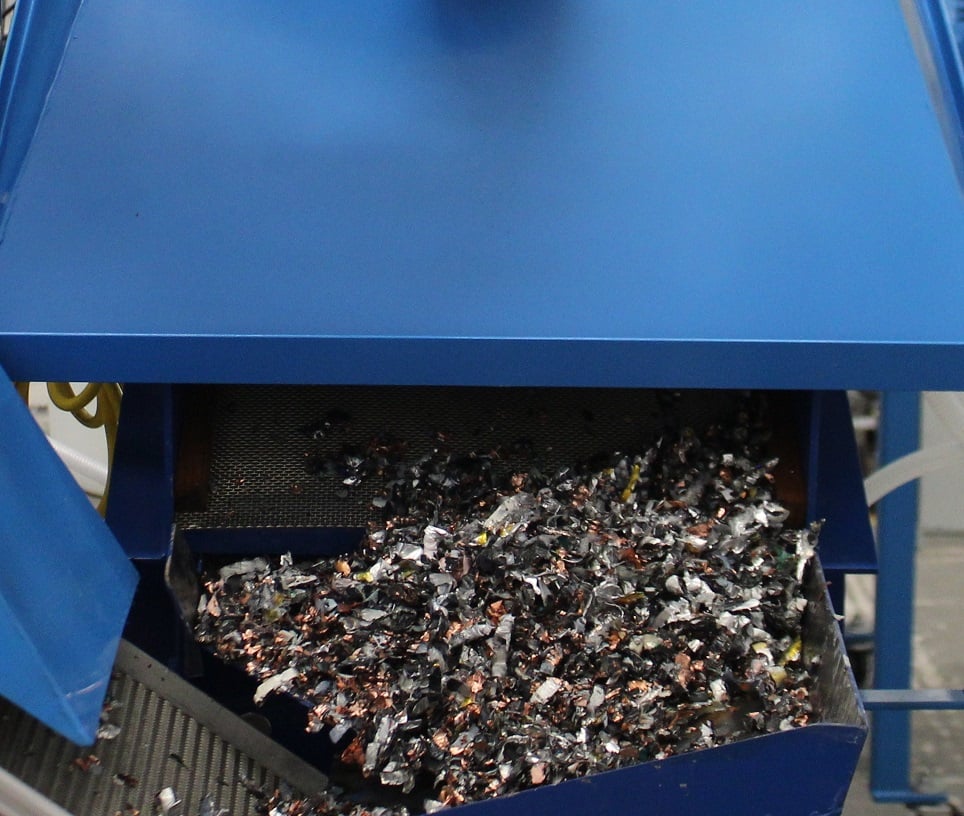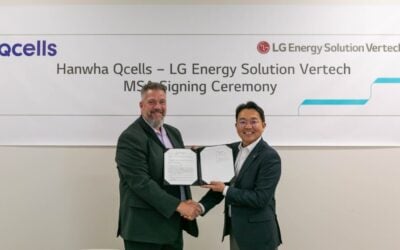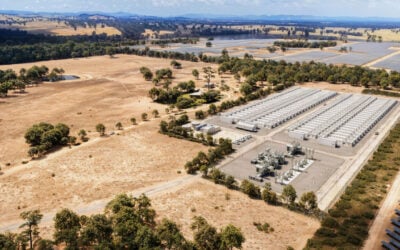
Lithium battery recycling company Li-Cycle now has capacity to recycle 10,000 tonnes a year of spent lithium-ion batteries, having just opened its Rochester, New York facility for commercial operations.
The Ontario-headquartered company started up shipments of recycled lithium battery materials to commercial customers towards the end of 2019 from its existing faciities in Canada, shortly before announcing its intent to set up facilities in New York State. Li-Cycle claims “at least 95%” and as much as 100% of the materials used in batteries, including cobalt, can be recycled using its proprietary two-step process of shredding battery packs and then removing valuable components and materials one at a time through a hydrometallurgy and wet chemistry process.
In September New York Governor Andrew Cuomo welcomed the company’s announcement that it would build the second of two facilities in his state. Climate protection policies the Governor introduced in 2019 include a target for the deployment of 3,000MW of energy storage in the state by 2030 and Cuomo said that the state’s partnership with Li-Cycle would “foster the supply chain” of lithium batteries and “further expand the thriving energy storage industry in the region”.
Li-Cycle said late last week that the Spoke 2 facility at Rochester’s Eastman Business Park is fully operational. The company operates ‘Hub’ and ‘Spoke’ facilities, with Spoke 2 creating an intermediate mixed battery material product known as ‘black mass’ from lithium batteries of “all types”.
Try Premium for just $1
- Full premium access for the first month at only $1
- Converts to an annual rate after 30 days unless cancelled
- Cancel anytime during the trial period
Premium Benefits
- Expert industry analysis and interviews
- Digital access to PV Tech Power journal
- Exclusive event discounts
Or get the full Premium subscription right away
Or continue reading this article for free
Spoke 2 can process up to 5,000 tonnes of batteries each year, adding to another 5,000 tonnes of capacity already in operation across Li-Cycle’s sites. The company’s Hubs then process that black mass product into battery-grade materials and other materials which can be used for other non-battery applications. The New York Hub, welcomed by Andrew Cuomo will be constructed by 2022 and Li-Cycle said the proceeds of a recently closed Series C funding round will help finance the Hub and allow the company to expand into international markets. The amount raised in the Series C has not been disclosed.
“This is a crucial step in scaling Li-Cycle’s technology and creating a strong foundation for the circular supply chain for lithium-ion batteries in a world where increased electrification is needed to combat climate change. Our goal is to better manage end-of-life lithium-ion batteries in order to meet the increasing demand for critical battery materials by creating a local source for these materials in North America,” Li-Cycle CEO Ajay Kochar said.
Energy-Storage.news received a brief commentary on Li-Cycle’s Spoke 2 plant opening from battery supply chain expert Hans-Eric Melin. Melin’s company Circular Energy Storage researches and analyses the lithium-ion battery market from the perspective of lifecycle including use, reuse and recycling.
Melin said that while Li-Cycle’s sole focus is not on batteries for energy storage systems, the industry will more than likely benefit from the growth of recycling facilities and the signal the opening of Spoke 2 sends out to the market.
“It’s very positive that the expansion of pre-processing capacity continues in North America,” Hans-Eric Melin said.
“I am pretty sure that collectors and OEMs will benefit from additional alternatives which ultimately will benefit end customers in the ESS industry as well. It’s both good for prices and it also give more geographical options which is very important if we want more materials to stay in the US and Canada.
“Li-Cycle’s position as a dedicated lithium-ion recycler is interesting because compared to many incumbent players they can’t rely on other waste streams but are strongly incentivised to rapidly take market share. This gets even more interesting of course with their hydrometallurgical processing plant which can be a real game changer.”
Chloe Holzinger, a senior analyst for energy storage at IHS Markit said that stakeholders involved in everything from raw materials to component and equipment production, as well as end users of battery energy storage will have a keen interest in the possibilities for recycling, at the Virtual Energy Storage Summit hosted by our publisher Solar Media in September.
Read the feature article, ‘Batteries need to be ‘renewable too’: why recycling matters now’, from Li-Cycle’s Stefan Hogg and the blog ‘Three things the energy storage industry should know about end-of-life’ by Circular Energy Storage’s Hans-Eric Melin.





